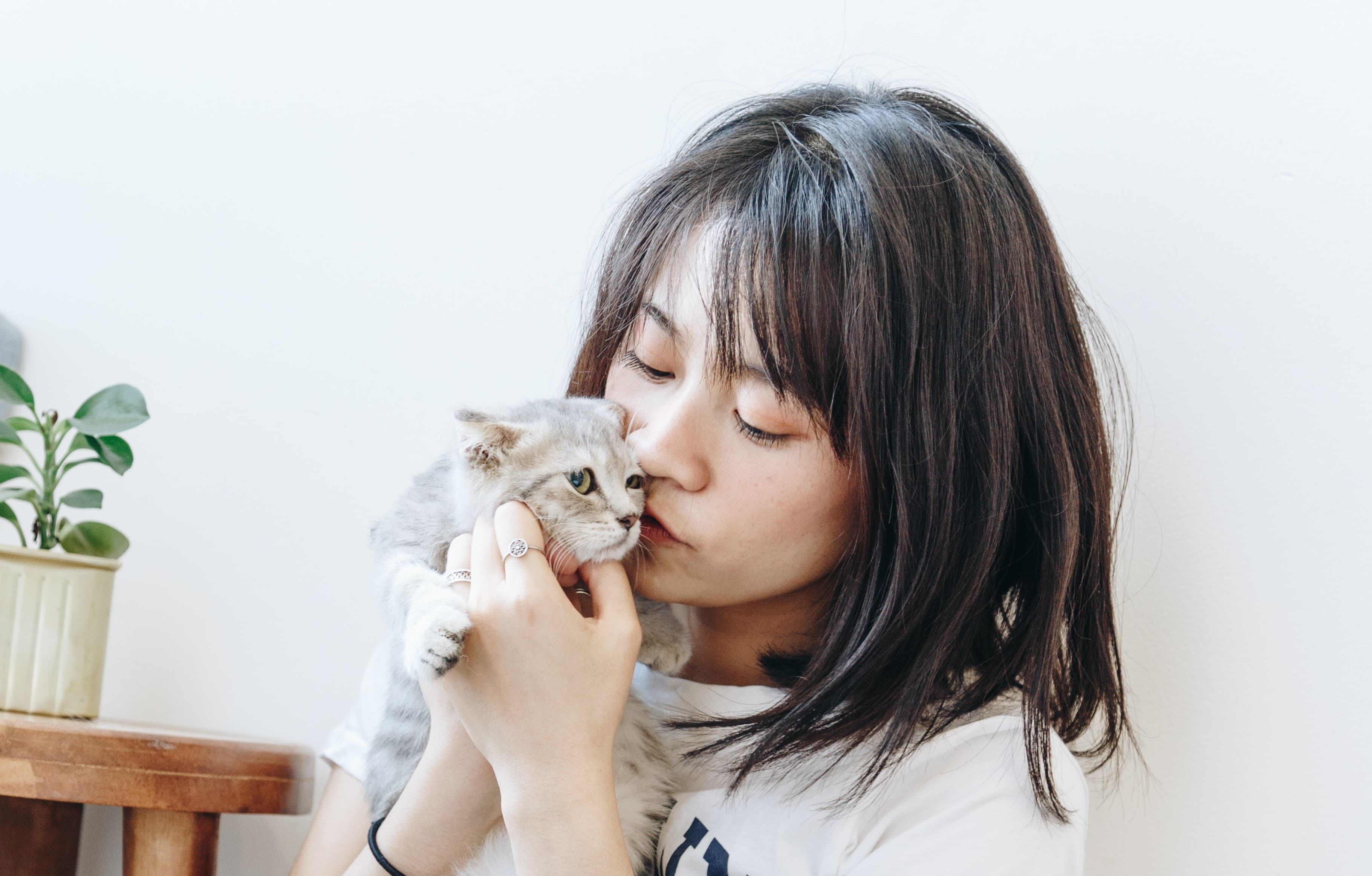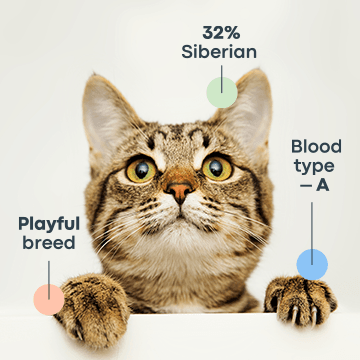Have you ever wondered what goes through your cat's mind when you lean in for a kiss-cat moment? While we often express our love for our pets through physical gestures like hugs and kisses, how cats perceive these actions can differ significantly from our understanding.
Many cat lovers have pondered, "Do cats like kisses?" and "What do cats think when we kiss them?"
The answer isn't straightforward, as each kissed cat might react differently based on their personality and past experiences. Cats, by nature, have their unique ways of expressing affection.
These methods are deeply rooted in their instinctual behaviors and communication styles. For instance, a cat's kiss is different from a human kiss. Instead, cats show affection through actions such as purring, head bunting, and slow blinking. These behaviors are their way of expressing love and comfort, quite different from the human gesture of kissing.
The Human-Cat Bond: A Unique Relationship
The bond between a human and a cat is unique and often profound. Many cat owners report strong emotional connections with their feline companions. Understanding this bond requires us to delve into how cats form attachments. Research shows cats can develop secure and trusting relationships with their caregivers.
This connection is evident in how cats seek out human company, display affection, and even react to human emotions. So, while a kissed cat might not comprehend the gesture in human terms, it certainly feels the love and affection behind it.
Do Cats Recognize and Appreciate Kisses?
This brings us to the question, "Do cats understand kisses?" No, cats do not recognize kissing as humans do. When a cat owner does kiss a cat, it's often seen as a sign of love and care. So, being sensitive to emotions and physical contact, cats can sense the affection in these gestures and usually respond positively.
However, not all cats appreciate being kissed. Some might feel threatened or uncomfortable with too much close contact. Understanding and respecting each cat's personal space and comfort level is essential.
How Cats Respond to Kisses: Positive and Negative Reactions
The reaction of a kissed cat can vary widely. Some cats might lean into the kiss, purr, and show signs of enjoyment. These positive reactions are indicators that the cat feels safe and loved.
On the other hand, some cats may react negatively to kisses. Signs of discomfort or annoyance could include backing away, hissing, or swatting. This doesn't necessarily mean the cat doesn't love their owner; it might simply be a matter of personal preference or mood.
The Best Ways to Show Affection to Your Cat
Understanding a cat's language of love is crucial for building a strong bond. While the concept of a cat's kiss might not be native to them, there are numerous ways to show affection that align more closely with their natural behavior.
Grooming, for instance, is a powerful way to express care. When you gently brush your cat or even engage in light petting, it mimics the grooming that cats do among themselves, signaling trust and affection.
Playing and engaging in activities that your cat enjoys can also strengthen your bond. Whether it's a simple game of chasing a string or using interactive toys, these activities show your cat that you understand and care about their happiness.
Do Cats Like Being Kissed on Specific Body Parts?
The question of "Do cats like kisses?" extends to where they might prefer these signs of affection on their body. It's commonly believed that most cats enjoy being kissed on their head or cheeks, where they have scent glands. These areas are less intrusive and can comfort a cat when approached gently.
However, this varies from cat to cat. Some may prefer not to be kissed, while others might tolerate or even enjoy kisses on different parts of their bodies. The key is to pay attention to how your cat responds and respect their preferences.
Recognizing and Respecting a Cat's Personal Space
Again, one of the most important aspects of showing affection to your cat is recognizing and respecting their personal space. Cats are known for their independence and can be particular about when and how they want to interact.
If a cat shows discomfort, such as flattened ears, tail flicking, or backing away, it's crucial to respect these signals and give your cat the space their need. Forcing affection, such as insisting on a kiss cat moment, can lead to stress and anxiety for your feline friend.
Frequently Asked Questions
What do cats think when we kiss them?
Cats may not understand the specific gesture of a kiss as humans do, but they can sense affection. They may associate it with positive feelings, depending on their personality and past experiences.
Does my cat know I love them?
Yes, cats can sense affection from their owners through various interactions, such as gentle petting, playing, and caring for their needs, and they often respond with their forms of affection.
Is it okay to kiss your cat on the head?
Many cats tolerate or even enjoy being kissed on the head, but observing your cat's reaction and respecting their preferences is important.





